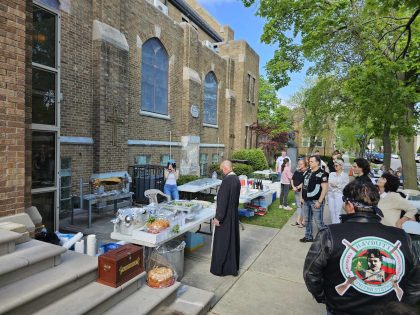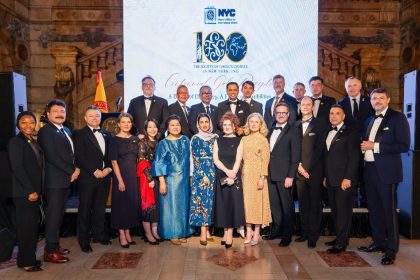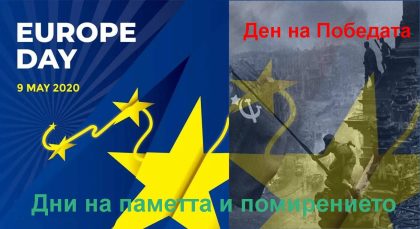By George N. Chaldakov
Homo reciprocans quero.
Diogenes, paraphrased
.
Today, a global commercialization increasingly dominating over human-to-human and country-to-country behavior. Used to suffer from communism (1944 – 1989), I am now really worrying about superliberalism and other variations on this common theme. I am worrying about our vulnerability to the actions of the most detrimental human behavior, that is, „the sustainable amorality,“ as F.M. Dostoyevsky called it more than a hundred years ago. Anyway, He expressed his conviction: „I will not and cannot believe that evil is the normal condition of mankind. And yet how simple it is: in one day, in one hour everything could be sorted out.“
This scenario prompted me to share with you three fables as an attempt to focus on human’s cooperation, empathy and virtue, that is, the Golden Rule of positive reciprocity.
A fable of two mules
The Two Mules above were taken from Wikipedia to illustrate herein a modification of Buridan’s ass named after the French philosopher Jean Buridan (c. 1295 – 1363). The mules tied with a rope are placed precisely midway between two stacks of hay – the same in size and quality. Further, the fable clearly demonstrates that cooperation is better than conflict. When each mule tries alone to reach a stack of hay, the two mules remain hungry, both lose (lose-lose solution). When they sit and ponder together – without anyone imposing their decision upon them – they in tandem reach first one, then another stack of hay and thus feed well. In effect, the two mules earn (win-win solution).
This fable reminds Aristotle’s De Caelo (On the Heavens) which describes the hungry and thirsty man who is placed equidistant between food and water, but he cannot decide to eat or drink – and so the man remains hungry and thirsty.
A fable of a group of African children
Anthropologist offered to children of African tribe to play a game. He set fruit basket at distance of them and tells the children: „He among you who was the first he reaches the basket, awarded all the sweet fruit.” When he made a sign to the children start the race, they – without anyone imposing their decision upon them – firmly grappled with their hands and ran together, and then all sat together and enjoyed a delicious fruit. Surprisingly, anthropologist asked the children why they ran all together, because each of them could enjoy the fruit for himself. Then they responded: „Obonato. Is it possible that one has been happy if all the other sad?” Obonato in their language means: „I exist because we exist.“
This is a reminiscence of Je est un autre (I is another, within me) – written by the great French poet Arthur Rimbaud on 13 May, 1871 in a letter to his teacher.
A fable of hedgehogs
It was very cold and many animals died from cold. Seeing that the hedgehogs decided to unite in groups to warm each other, but each of thorns hurt their neighbors. Then they decided to move away and began to die of frostbite. Smarter and better educated hedgehogs however agreed – without anyone imposing their decision upon them – to tolerate spines of others and thus learned to live with the small wounds from communicating with the closest.
Magister dixit
The behavior of cooperation-empathy-virtue also has a healthy benefit. In his book The Stress of Life, published in 1956, Professor Hans Selye wrote that one way to reduce the harmful effects of bad stress (distress) is to cooperate with each other. Such a reciprocal behavior reminds a biblical statemen: “do unto others as you would have them do unto you” (Luke 6: 31). Likewise, magnetic resonance imaging (MRI) demonstrates that the same brain structures and molecules mediate altruism, cooperation and pleasure. Thus scientists are beginning to decode the Golden Rule of reciprocity,* whereas we are still living in the atmosphere of insufficiency of social, political and personal ethics of cooperation, obonato and empathy. Globally, not only in Bulgaria.
Perhaps, we – mentally and morally – are in a glacial period of human ethics.** Hence indefinitely postponing the onset of something new, nice, big, forever – paraphrasing a dream of the Hungarian (Magyar) poet Endre Ady, who in the early 20th century „helped the sun with a lamp – to shine.“
In his poem „After the conjuncture little men“ he wrote:
Now the little men of conjuncture feast,
but construction stones are already ready.
However, we will come to do
something new, Magyar, nice, big, forever.
And globally.
.
______________________________________________________________
* Chaldakov G, Chaldakov N. Homo reciprocans. European perspective. In: The Human. Thoughts, Feelings, Friendship. Publisher “Atelie’89”, Varna, 2010. pp. 33-34.
** My next essay might be entitled Glaciology of human behavior (Latin, glacies – ice; Greek, logos – study).
The present three fables are also recommended to politicians. To learn to apply politics of a balance of cooperation and independence. Because it makes the real power of each country and its citizens, at national and personal level.




